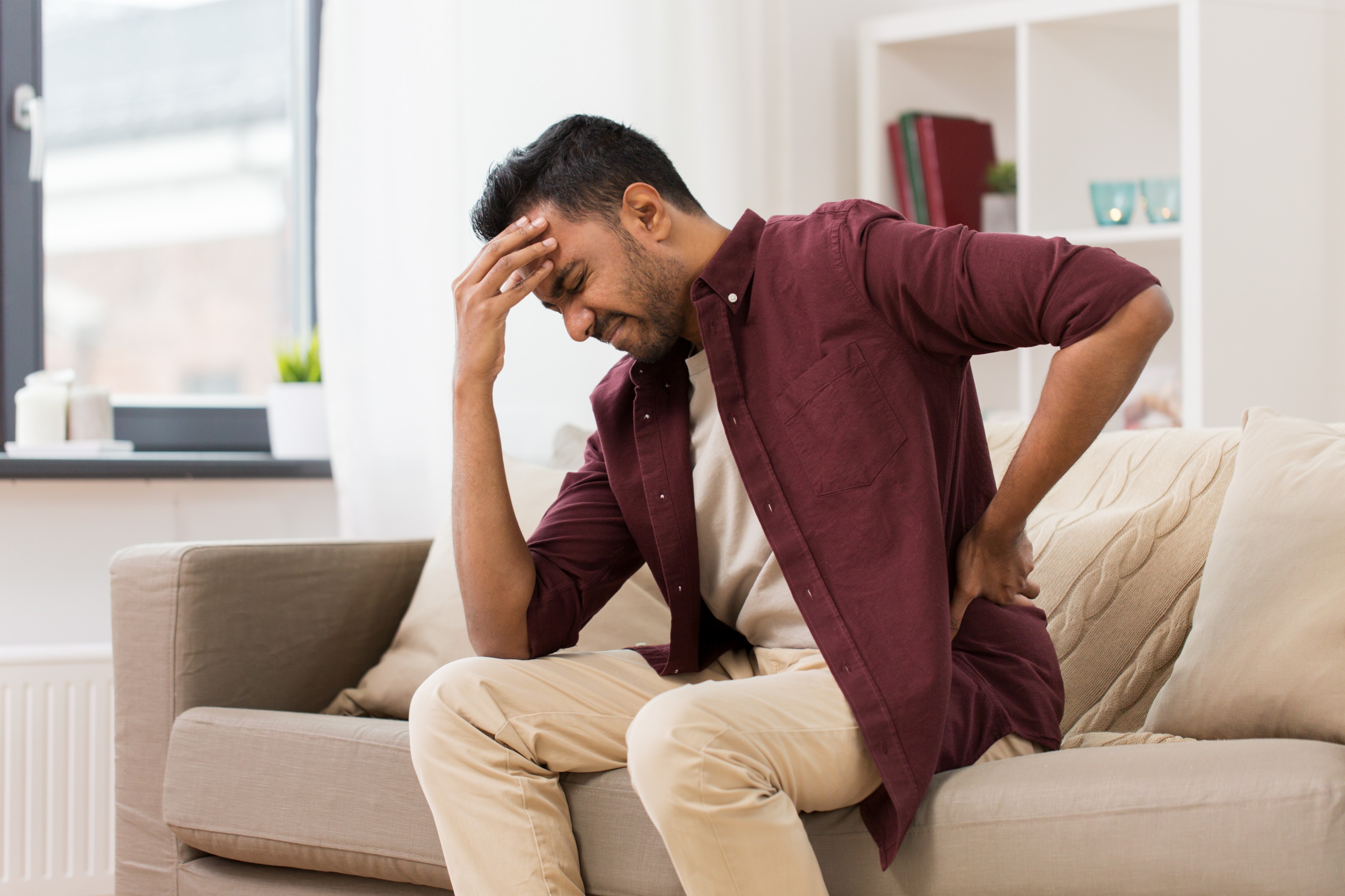What is a kidney stone?
Your urinary tract is made up of your kidneys, ureters, bladder, and urethra. Kidney stones are hard, irregularly shaped pebble-like mineral and salt deposits that form inside your kidneys.
Kidney stones solidify and become painful as they move through–or get stuck in–your urinary tract. Most of the time, these painful little stones will be passed through your urine within a few weeks. In that instance, the best things to do are to hydrate (or borderline over-hydrate) with water to help it move through your urinary tract quickly and efficiently, and to manage your pain with pain medication.
Kidney stones vary significantly in size, ranging from a grain of sand to a golf ball, with the average around the size of a chickpea. You can have one kidney stone or several, and their compositions might be different from one another (e.g. calcium vs. uric acid).
Larger kidney stones can lodge somewhere in your urinary tract and cause complications with urine flow. This can lead to painful spasms and infections that require more serious medical intervention, like surgery. About 1 in 10 people will get a kidney stone in their lifetime. Read on to learn more about causes, symptoms, and treatments.
Why do kidney stones happen?
The short answer: doctors aren’t always sure. And unfortunately, once you’ve had one kidney stone, you’re at risk for developing more in the future. However, there are several health, history, and lifestyle factors known to increase your risk for developing kidney stones:
- Diet and weight.If you have a high-sodium (salt) diet, your kidneys have to filter way more calcium out of your kidneys, and that significantly raises your risk of developing kidney stones. A diet high in protein and sugar can have similar risks. Weight gain and higher weight, or body mass index (BMI), can also make you more susceptible to kidney stones.
- Prescription medications and over-the-counter (OTC) supplements.Certain prescription antidepressants and migraine medications can increase your risk of kidney stones. Excessive use of OTC products like laxatives, vitamin C, and calcium-based antacids like TUMS can also make you more vulnerable to kidney stones.
- Dehydration.Drinking too little water makes you more at risk of developing kidney stones. If you sweat a lot or live in a hot, dry place, but don’t drink much water, you could develop kidney stones.
- Family history. If there is history in your family of kidney stones, you may also have a genetic predisposition for them. Disease or surgical history. A history of bariatric (weight-loss) surgery, irritable bowel syndrome (IBS), and chronic diarrhea can damage your digestive tract and make it harder for you to absorb water and calcium. More calcium means more stone-forming potential.
- Medical conditions. Recurrent urinary tract infections (UTIs), cystic fibrosis, gout, diabetes, and parathyroid disease can also increase your chances for developing a kidney stone.
Signs you might have a kidney stone
Here’s a wild thing about kidney stones: you can have them for years and not even know they’re there. It’s only when they begin to move around inside the kidney and down the urinary tract, or enlarge dramatically, that you notice them.
Here are some key indicators that you might have a kidney stone:
- Your urine is different. There might be blood in your urine, a cloudy appearance, a foul odor.
- Urinating feels uncomfortable. You might feel like you have to urinate often, but can’t (urinary urgency), not be able to urinate at all, or have painful urination.
- You’re in pain. The pain can cause a deep, dull ache in your lower back and/or flank (the side of your body between your pelvis and the bottom of your ribcage), nausea and/or vomiting, chills and fever, much like the flu, a sharp, stabbing sensation that feels emergent, bloodwork and medical imaging tests such as CT scans, ultrasounds, and abdominal X-rays can help a doctor confirm a diagnosis of kidney stones.
What can mimic kidney stone pain? Kidney pain vs. back pain
Back pain from an injury or strain may cause similar pain to kidney stones. Here’s how to differentiate:
- Location.Your kidneys are about midway up your torso, inside your ribcage. Pain originating in the kidneys is often felt in the upper half of the back, not the lower half (though this can certainly change if a kidney stone is in your ureters, bladder, or urethra). Back pain is more commonly felt in the lower back.
- Position.Kidney pain is also more likely to persist regardless of physical position, whereas back pain might feel better or worse depending on how you’re sitting, standing, or laying.
- Other symptoms. If you have chills, a fever, or deep fatigue along with your pain, it is more likely to be kidney-related. Please note: only licensed medical professionals, with the aid of diagnostic imaging scans, can confirm what type of pain you’re having and why.
How long does it take to pass a kidney stone?
It depends on the size:
- A kidney stone under 4 mm can pass on its own (without medical intervention) about 80% of the time. Small stones like these take about a month to pass.
- A kidney stone between 4 to 6 mm may require medical intervention of some kind, but about 60% of them are still able to pass naturally. These take closer to 45 days to pass.
- A kidney stone over 6 mm will need medical intervention–likely surgery. It could take up to a year to try to pass a stone this size naturally.5
Find a scan center
If you’re concerned you may have a kidney stone, head to scan.com’s scan search tool where you can find a center that matches your needs.
Resources:
- mayoclinic.org: Kidney stones
- clevelandclinic.org: Kidney Stones
- kidney.org: Kidney Stones
- webmd.com: Kidney Pain
- healthline.com: Passing a Kidney Stone: How Long Does It Take and When Should You Call Your Doctor?

